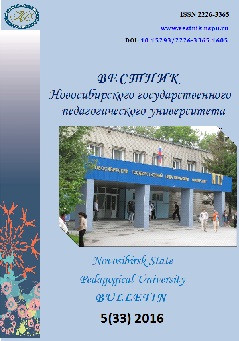Миграция в истории экономической науки: гносеологические основания изучения
Migration in the history of economic science: epistemological grounds of studying
Author(s): Yuliya Vladimirovna BelskayaSubject(s): National Economy, Supranational / Global Economy, Epistemology, Philosophy of Science, Socio-Economic Research
Published by: Новосибирский государственный педагогический университет
Keywords: Migration; epistemological grounds of migration theories; individualism; holism; economic man; research program; neoclassic; institutionalism; social capital theory; world-system theory
Summary/Abstract: The article presents an analysis of the basic theories of studying migration processes in economic science. The relevance of studying the processes of people movement at the present stage of social relations development is considered. The purpose of the article is to identify and analyze the dynamics of the epistemological grounds of conceptualizing migration processes in the economic theory through the study of worldview attitudes, statements and hypotheses repre-senting the conceptual core of various theoretical constructs, associated with the study of migration. The idea of the interdisciplinary nature of studying migration and the role of economic knowledge is justified. The article reveals the epistemological grounds of conceptualizing the phenomenon of migration in the framework of classical, neoclassical and institutional research programs in economic theory. Individualism and holism are described as methodological principles of research of socio-economic reality. The author identifies the role of economic man model as a research tool in theoretical description of the migration processes. There is pro-posed an idea of the integrated approach to studying migration, which should be based on an analysis of five key subjects: 1) Structural forces in the countries of origin, determining the need of people to migrate; 2) Structural forces in the countries of entry, determining the demand for migrants; 3) Motivation of people reacting to structural factors with the aim of moving across borders; 4) Transnational social structures and organizations, resulting from globalization or international migration, in particular, and affecting people movements; 5) Government policies. The article draws a conclusion, related to the evaluation of transforming epistemological grounds of conceptualizing migration processes in the history of economic science.
Journal: Вестник Новосибирского государственного педагогического университета
- Issue Year: 6/2016
- Issue No: 5
- Page Range: 144-155
- Page Count: 12
- Language: Russian

